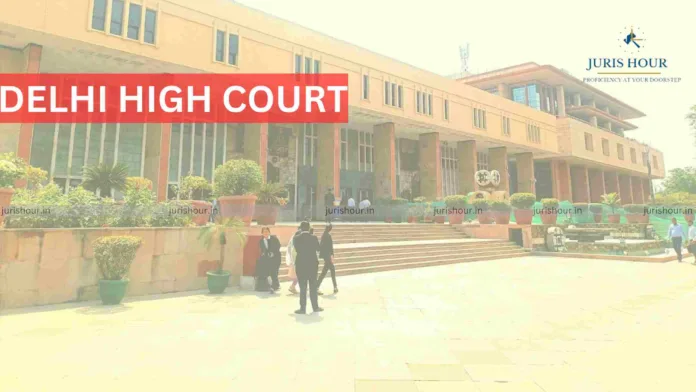The Delhi High Court has held that the extended 10-year limitation for initiating reassessment inapplicable without escaped income as ‘asset’.
The bench of Justice Vibhu Bakhru and Justice Tejas Karia has observed that the period of limitation for issuing a notice under Section 153A of the Income Tax Act, in the given facts of this case, would necessarily have to be confined to a period of six assessment years immediately preceding the assessment year relevant to the previous year in which the search under Section 132 of the Income Tax Act was conducted.
The petitioner/assessee filed its income tax return under Section 139(1) of the Act in respect of Assessment Year 2016-17. The petitioner’s return of income was selected for scrutiny and the Assessing Officer issued a notice under Section 143(2) of the Income Tax Act. The proceedings culminated in an assessment order dated 18.12.2018 passed under Section 143(3) of the Income Tax Act. In terms of the said assessment order, the AO made an addition of Rs. 2,98,84,704 to the declared income of the petitioner for AY 2016-17.
The petitioner appealed the assessment order before the Commissioner of Income Tax (Appeals) (CIT(A)).
The appeal was partially allowed by an order by which the CIT(A) deleted the addition of Rs. 8,35,864 made on account of disallowance under Section 14A of the Act read with Rule 8D of the Income Tax Rules, 1962.
The income tax officials conducted search and seizure operations in the premises of the petitioner; other related entities; and at the residences of the key managerial personnel during 21.03.2023 to 25.03.2023.
The AO issued the notice and forwarded the reasons for initiating the reassessment proceedings. The petitioner has filed the petition assailing the notice on the ground that it is barred by limitation.
Sumit Lalchandani, the counsel appearing for the petitioner contended that in terms of the first proviso to Section 149(1) of the Act, the reassessment of income relating to AY 2016-17 could not be reopened beyond the period of six years, which immediately preceded the assessment year relating to the previous year in which the search is conducted under Section 132 of the Act or requisition is made under Section 132A of the Act.
Mr. Lalchandani added that the search under Section 132 of the Act in the present case was conducted during the period 21.03.2023 to 25.03.2023, that is, during the previous year 2022-23. Thus, the period of six years for which the AO can travel back to reassess the petitioner’s income is required to be reckoned from immediately preceding AY 2023-24, and AY 2016-17 falls beyond the period of six years.
Abhishek Maratha, counsel appearing for the department countered the said submissions. He contended that, in terms of Section 149(1)(b) of the Act, the limitation for reopening of the assessment would extend to ten years, being the maximum period for which reassessment could be initiated by issuing a notice under Section 153A of the Act, subject to incriminating material being found during the search conducted under Section 132 of the Income Tax Act or requisition being made under Section 132A. In terms of Section 149(1)(b) of the Act, as was in force at the material time, the assessment could be opened for a period exceeding three years but not more than ten years. However, by virtue of the proviso to Section 149(1), no such notice under Section 148 of the Act could be issued if such a notice could not be issued under Sections 148, 153A or 153C at the time on account of the same being beyond the time as stipulated under Section 149(1)(b).
Mr Lalchandani disagreed and argued that the extended period of limitation beyond the six years preceding the assessment year relevant to previous year in which a search was conducted, would be applicable only in cases where the AO had evidence, which discloses that the escaped income was represented by an asset. He contended that, in the present case, the income which is alleged to have escaped assessment is on account of an expenditure, which the AO had disallowed and not on account of any asset which represents such income.
The court held that the search in question was conducted in financial year 2022-23. Thus, the relevant block of six assessment years would be the six assessment years preceding AY 2023-24, being the assessment year relevant to the previous year in which the search was conducted. Accordingly, AY 2016-17 falls beyond the block of six years.
Case Details
Case Title: Smart Chip Private Limited Versus ACIT
Case No.: W.P.(C) 3801/2025, CM Nos. 17708/2025 & 19656/2025
Date: 23.04.2025
Counsel For Petitioner: Sumit Lalchandani
Counsel For Respondent: Abhishek Maratha
Read More: Reassessment Notice Issued With The Approval Of JCIT Is Invalid: Delhi High Court

